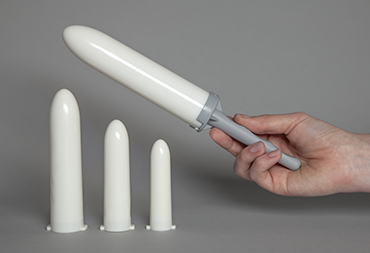Surgery to the pelvic area and genitals for women
You might need surgery to the womb, cervix, ovaries or genital area. This might cause changes to your sex life.
Surgery to remove the womb, cervix, or ovaries
Surgery to remove the womb (uterus) is called a hysterectomy. It can be a treatment for cancer in the:
- womb (uterus)
- lining of the womb (endometrium)
- cervix (neck of the womb)
- ovary
Your surgeon might suggest leaving your ovaries behind if you haven't had your menopause, but that is not always possible. Having your ovaries removed will cause an immediate menopause.
Sex after surgery
Pelvic surgery can cause physical problems with sex. After some types of pelvic surgery, you may have:
- vaginal dryness
- a slight shrinking of the vagina
- shortening of the vagina.
Some women notice a change in the sensation of orgasm after having their womb removed.
Your feelings
You might feel very sad after a hysterectomy. Losing your womb can be a big reminder that you can no longer have children. You may feel like this even if you went through the menopause a while before your surgery. The strength of your feelings may surprise you. Like all emotional upheavals, it can take some time to deal with this. You may need some help and support.
Surgery to the genital area
Genital surgery is usually used to treat vulval or vaginal cancer. Both of these cancers are quite rare. You may also have genital surgery for some skin conditions, such as vulval intraepithelial neoplasia (VIN). These conditions may cause severe itching and pain, and might lead to cancer if they are not treated.
Vulval surgery
The vulva is the area between your legs, including the outer and inner lips of your vagina and the clitoris. You might need to have all these parts of your vulva removed during surgery. The surgery causes numbness and if your clitoris is removed, you may not be able to have an orgasm.
With time and patience, you should still be able to have sexual intercourse. You might still be able to orgasm through stimulation of other sensitive areas of your body, such as your breasts.
If you have surgery to remove your vulva (radical vulvectomy) the lymph glands in your groins will also be removed. Removing the lymph glands may cause swelling in the area and in your ankles and legs.
This type of surgery can be very distressing. You may feel very sad and upset at first. It might take some time for you and your partner, if you have one, to get used to the changes in your body.
Vaginal surgery
The vagina is the passage that leads from the cervix to the vulva. If you have the lower part of your vagina removed then you may have a loss of interest in sex. Or have problems reaching orgasm. You may also have some numbness in your genital area after this type of surgery.
You may vaginal reconstruction using a thigh flap. This might make you feel a strange sensation in your inner thighs when you have sexual intercourse.
Women have described this sensation as feeling as if your inner thighs are being stroked. It happens because the nerves that supply the thigh tissue are now part of the walls of the rebuilt vagina. Your brain picks up this message and thinks that the leg is being touched. This can be very off putting at first but with time you will get used to it and it can even become sexually stimulating.
Women have said they do not feel that they can contract the muscles around the entrance to the vagina as easily as before their surgery. You may need to experiment a bit and try different sexual positions. With time and patience, you may be able to find some positions that you both enjoy.
If sex is painful
Scar tissue from surgery can make having penetrative sex uncomfortable, or even painful. If this happens, ask your doctor or nurse about using vaginal dilators. You might need to avoid intercourse in the meantime.
Dilators are smooth cone shaped objects that you put into your vagina to stretch it. They come in sets of different sizes. There are a variety of vaginal dilators made from silicone as well as plastic. Some have a small vibrator in the base that can alter sensation.

Your doctor or nurse will explain how to use the dilator. Also how often and how long the dilator should stay in place each time you use it. You use dilators with a water soluble lubricating gel. You begin with a dilator of a comfortable size. Then start to use larger ones until your vagina is stretched enough for you to have sex comfortably.
If you are worried
If you feel nervous about starting your sex life again, try not to worry. You probably just need more time to come to terms with all that has happened to you. If you are worried, anxious or depressed, you are not likely to feel like having sex. Give yourself more time.
If you have a partner, talk things over. Together you should be able to work out what is best for you both. You can see a sex therapist if you are able to. And there are organisations that help with relationship and sexual issues.
You might feel shame or embarrassment talking to your healthcare team about sex. Do try and open up to them if you can. There might be support they are able to offer.



